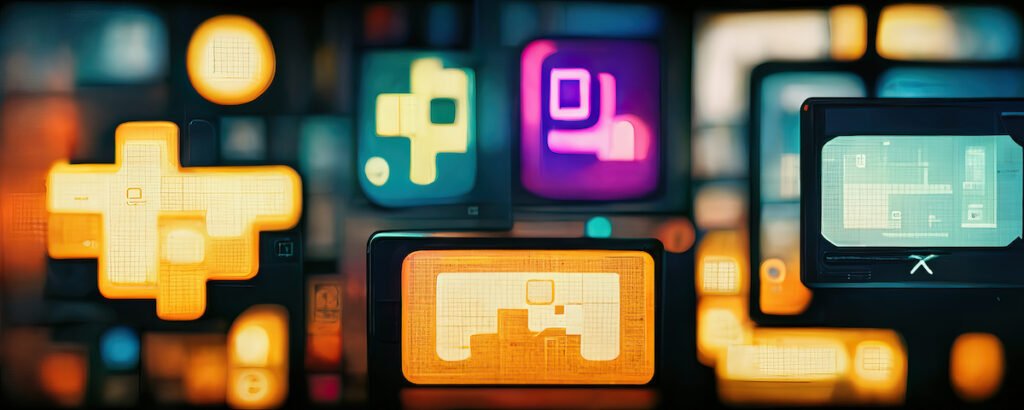In recent years, in-game economies have become a major aspect of many popular video games. From virtual currencies to rare items and skins, these digital economies have created a new realm for players to engage with and immerse themselves in.
However, the current state of these economies is far from perfect. Limited ownership, fraud, and lack of transparency are just some of the issues plaguing in-game economies. But, with the emergence of blockchain technology, a new potential for these economies has emerged.
Advantages of Blockchain for In-Game Economies
Blockchain technology offers several advantages that have the potential to revolutionize in-game economies.
Ownership and Scarcity
One of the major drawbacks of traditional in-game economies is that players do not truly own their digital assets. Items and currencies are often controlled by the game developers, who can change or remove them at any time. But with blockchain, true ownership and verifiable scarcity of digital assets become possible through non-fungible tokens (NFTs).
Interoperability and Secondary Market
Blockchain also enables players to transfer and trade their assets across different games or platforms. This opens up a secondary market for rare items, allowing players to further monetize their in-game achievements.
Transparency and Security
With blockchain’s decentralized and transparent nature, transactions within the game economy become secure and fraud-proof. This not only protects players from scams but also reduces manipulation by game developers.
Player Empowerment and Revenue Sharing
Perhaps one of the most exciting possibilities of blockchain-based in-game economies is the potential for players to earn real-world value through their in-game achievements. Additionally, player participation in game governance through decentralized autonomous organizations (DAOs) can give them a say in the direction of the economy.

Challenges and Uncertainties
While the potential of blockchain for in-game economies is promising, there are also several challenges and uncertainties that must be addressed.
Scalability and Sustainability
One of the main limitations of blockchain technology is its scalability and energy consumption. As more transactions occur within a game economy, the network can become congested and slow down. Additionally, the high energy consumption required for mining new blocks has raised concerns about the sustainability of blockchain.
Regulations and Legal Frameworks
The legal landscape surrounding blockchain-based gaming is still unclear, with potential regulatory hurdles in various countries. This uncertainty could hinder the growth and adoption of these economies.
Player Adoption and Integration
Mainstream players may be hesitant to adopt blockchain-based mechanics, as they can be complex and unfamiliar. Additionally, integrating these mechanics seamlessly into existing game designs can be a challenge for game developers.
Environmental Concerns and Social Impact
Blockchain’s high energy consumption has been met with criticism regarding its potential negative impact on the environment. There are also concerns about social issues such as gambling addiction that may arise from these economies.

Potential Future Scenarios
Despite the challenges, there are many exciting potential scenarios for the future of blockchain-based in-game economies.
Mainstream Adoption and Gamification of Finance
Imagine a future where these economies become commonplace, blurring the lines between gaming and finance. Players could potentially earn a living through their in-game achievements, creating a new form of gamified employment.
Player-Driven Economies and Decentralized Governance
With the use of DAOs, players could have significant control over the economy and decision-making within their favorite games. This would create a more democratic and player-centric approach to game development.
Metaverse Convergence and Interoperable Avatars
As gaming metaverses continue to grow in popularity, interoperability between different virtual worlds becomes a possibility with blockchain. Players could use the same avatar and digital assets in different games, creating a truly interconnected gaming experience.
Unforeseen Developments and Unexpected Challenges
As with any emerging technology, there are bound to be unforeseen developments and unexpected challenges that may shape the future of blockchain-based in-game economies. It is crucial to remain adaptable and open-minded as these economies continue to evolve.
Conclusion
In conclusion, the potential of blockchain for in-game economies is undeniable. From true ownership and scarcity to player empowerment and revenue sharing, this technology has the ability to address many issues plaguing traditional game economies. However, challenges such as scalability, regulations, and adoption must be overcome for this potential to be fully realized. Only time will tell how these economies will evolve and shape the future of gaming.





















































































Usually I do not read article on blogs however I would like to say that this writeup very compelled me to take a look at and do it Your writing style has been amazed me Thank you very nice article
Your writing style is both engaging and informative. I love how you’ve structured the content to keep readers hooked from start to finish. Thanks for sharing your expertise—it’s inspired me to dive deeper into this topic!
Your blog never disappoints! This post, in particular, provided a fresh perspective, and I really enjoyed reading it. Looking forward to more great content!
For the reason that the admin of this site is working, no uncertainty very quickly it will be renowned, due to its quality contents.
Your blog is always a goldmine of useful information, and this post is no exception. I appreciate the time and effort you put into creating such high-quality content!
Good post! We will be linking to this particularly great post on our site. Keep up the great writing
Hey Fellas! Looking For Best Ice Makers? This Top 5 Comparison May Help You Make Inform Decision!
Practical advice, always appreciate posts that simplify the process! A free resource on Amazon launch strategies (including sourcing and avoiding common errors) could add value to readers. This may help many people.
Great insight! Managing cloud servers often seems complex, but Cloudways takes the stress out of the equation. Their platform delivers powerful performance without the usual technical headaches. It’s an ideal solution for those who want scalable hosting without getting lost in server configurations. Definitely worth checking out for a smoother hosting journey. Keep up the excellent work! Explore more through the link.
Supercharge your online business with the ultimate managed hosting solution — experience speed, security, and simplicity with Cloudways!
URGENT: Cloudways 30% discount ends May 31st (code: HAPPYWP22). Their cloud infrastructure + WordPress optimization is unmatched. Global CDN, advanced caching, SSD storage – perfect for high-traffic sites. Don’t miss this!
Tired of your phone living its best life without accessories? Fix that here: https://bit.ly/phone-access0ries
how to get clomiphene tablets can i buy generic clomiphene tablets can you get clomiphene pills clomid chart where can i get clomid without dr prescription buying clomiphene clomiphene pills price at clicks
The thoroughness in this break down is noteworthy.
Treat yourself—your jewelry box is crying for an upgrade! 💖 https://bit.ly/jewelry-colleciton
Thanks towards putting this up. It’s well done.
zithromax 500mg tablet – buy tetracycline 250mg without prescription buy metronidazole for sale
order rybelsus 14mg online cheap – buy rybelsus 14mg for sale cyproheptadine ca
purchase motilium generic – motilium 10mg canada flexeril oral
purchase inderal pills – oral plavix buy methotrexate 10mg online cheap
Easy Guide to Make Magento Faster – https://digitalfinds.reviewfriendly.com/make-magento-faster/
Scalable Hosting Solutions for Growing Businesses: Complete Guide – https://digitalfinds.reviewfriendly.com/scalable-hosting-solutions/
How to Reduce Website Downtime: A Complete Guide for Web Owners – https://digitalfinds.reviewfriendly.com/how-to-reduce-website-downtime/
nexium capsules – anexa mate esomeprazole 20mg without prescription
order warfarin 5mg sale – anticoagulant cozaar 50mg uk
buy mobic generic – moboxsin.com buy meloxicam 7.5mg generic
amoxicillin online – combamoxi order amoxicillin pills
buy fluconazole 100mg generic – fluconazole 200mg price order fluconazole 100mg pills
cenforce ca – this buy cenforce medication
what is the normal dose of cialis – https://ciltadgn.com/ cialis side effect
cialis free trial voucher 2018 – https://strongtadafl.com/ cialis com free sample
purchase ranitidine sale – https://aranitidine.com/# zantac 150mg pill
cheap viagra uk buy – strong vpls sildenafil 50 mg buy online
The thoroughness in this piece is noteworthy. https://gnolvade.com/
This is the stripe of serenity I enjoy reading. https://buyfastonl.com/furosemide.html
I am in fact happy to gleam at this blog posts which consists of tons of profitable facts, thanks towards providing such data. https://ursxdol.com/get-metformin-pills/
I couldn’t hold back commenting. Well written! https://prohnrg.com/product/rosuvastatin-for-sale/
I am actually thrilled to coup d’oeil at this blog posts which consists of tons of worthwhile facts, thanks object of providing such data. viagra homme pharmacie
More content pieces like this would create the web better. https://ondactone.com/product/domperidone/
More posts like this would bring about the blogosphere more useful.
propranolol cheap
forxiga sale – https://janozin.com/# forxiga price
order xenical without prescription – this order orlistat online
I couldn’t hold back commenting. Profoundly written! http://sols9.com/batheo/Forum/User-Gfejlb